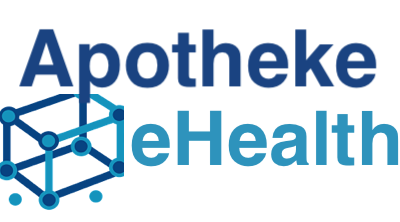The Guide to Nutritional Counseling by the eHealth Hub is a resource that highlights the significance of personalized dietary guidance, particularly within hospital settings. It emphasizes the role of nutrition counseling in promoting well being and addresses its benefits, processes, challenges and future trends.
Getting Started
Starting with the understanding that proper nutrition’s key to maintaining good health and managing medical conditions effectively nutrition counseling (also referred to as medical nutrition therapy) involves personalized guidance from trained professionals. The eHealth Hub recognizes its importance. Actively supports its integration into healthcare practices nationwide.
The Importance of Nutrition Counseling in Hospitals
Within hospitals nutrition counseling plays a role in supporting patient recovery and preventing complications. Its focus is, on addressing dietary needs to ensure patients receive optimal nutrition during their stay. By tailoring nutrition plans to each patients requirements healthcare providers can enhance healing outcomes minimize complications and improve the effectiveness of medical treatments.
The role of the eHealth Hub (EHH) in promoting nutrition counseling
The AHA. Emphasizes the importance of nutrition counseling in achieving positive outcomes for patients. They actively work towards integrating it into healthcare practices through research, advocacy and collaboration with healthcare professionals. Their goal is to raise awareness about the significance of nutrition counseling and provide guidance to hospitals on implementing programs.
Benefits of nutrition counseling for patients
Improved health outcomes
One of the advantages of nutrition counseling is its potential to enhance health outcomes. By addressing dietary needs and incorporating evidence based recommendations patients can gain better control over chronic conditions reduce hospital readmissions and experience overall improvement in their well being.
Disease management and prevention
Nutrition counseling plays a role in managing and preventing chronic diseases like diabetes, heart disease and obesity. By equipping patients with knowledge and tools to make food choices it empowers them to take charge of their health while reducing the risk of complications associated with these conditions.
Personalized approach to nutrition
Every patient is unique having nutritional requirements and preferences. Nutrition counseling adopts an approach by considering individual needs, medical history, cultural background as well, as lifestyle factors. This personalized approach guarantees that patients receive guidance tailored to their circumstances thereby increasing the chances of successful dietary transformation.
The process of nutrition counseling
The process of nutrition counseling typically involves crucial steps to ensure a comprehensive and effective approach to patient care.
Initial Evaluation
During the evaluation a dietitian assesses the patients medical history, current dietary habits and any existing health conditions. This evaluation helps identify areas of concern. Forms the foundation for creating a personalized nutrition plan.
Goal Setting and Plan Development
Based on the assessment the dietitian collaborates with the patient to establish goals and develop an individualized nutrition plan. The plan takes into consideration the patients preferences, cultural factors, as well as any restrictions or limitations.
Education and Support
Education and support play roles in nutrition counseling. Dietitians educate patients about the significance of nutrition interpret food labels offer guidance on portion control and meal planning. Additionally they provide support to motivate and empower patients in making enduring changes to their diets.
Monitoring and Follow up
Regular monitoring sessions and follow ups are conducted to ensure progress and success. Dietitians track patients adherence, to their nutrition plans while addressing any challenges or concerns that may arise along the way. Adjustments are made as necessary.
Qualifications of a Dietitian
To deliver nutrition counseling healthcare facilities employ qualified professionals who have expertise in the field of nutrition and dietetics.
Registered Dietitians
Registered dietitians (RDs) are skilled experts who have completed accredited programs specializing in nutrition and dietetics. They possess knowledge in medical nutrition therapy and are proficient in assessing, diagnosing and treating conditions related to nutrition.
Certifications and Training
Certification and Training
Dietitians may also hold certifications such as Certified Diabetes Educator (CDE) or Certified Specialist in Oncology Nutrition (CSO). These certifications demonstrate their training in specific areas of nutrition counseling enabling them to cater to patients with unique dietary needs.
Incorporating Nutrition Counseling into Healthcare Settings
The successful integration of nutrition counseling into healthcare settings relies on collaboration and implementation strategies.
Working Alongside Medical Professionals
By working with other healthcare disciplines like physicians, nurses and therapists the integration of nutrition counseling can provide comprehensive patient care. This collaboration ensures that nutritional considerations are taken into account within the context of a patients medical treatment plan.
Utilizing Electronic Health Records and Data Analytics
The utilization of health records (EHRs) and data analytics can enhance the effectiveness of nutrition counseling. EHRs offer insights, into patients medical histories allowing dietitians to develop personalized plans based on comprehensive information.
Community Outreach and Education Programs
In order to expand the benefits of nutrition counseling beyond the hospital setting, community outreach and educational programs play a crucial role. These programs aim to increase awareness about eating habits provide practical tips on nutrition and assist individuals in making well informed choices.
Addressing Challenges in Nutrition Counseling
While nutrition counseling offers advantages there are certain obstacles that need to be overcome for it to have widespread adoption and effectiveness.
Limited Insurance Coverage
The extent of insurance coverage for nutrition counseling services varies, with not all plans offering coverage. This limited coverage can create difficulties in terms of accessibility and affordability for patients who would greatly benefit from services. It is crucial to advocate for expanding insurance coverage that includes nutrition counseling.
Cultural and Dietary Preferences
Cultural and dietary preferences can significantly influence a patients willingness to make changes. Dietitians must be sensitive towards these preferences. Work collaboratively with patients in developing culturally appropriate and realistic nutrition plans.
Motivating Behavior Change
Motivating patients to make lasting changes in their diet and lifestyle can pose challenges. Dietitians employ techniques for behavior change including goal setting, positive reinforcement and ongoing support to help patients overcome barriers and achieve long term success.
Future Trends and Innovations in Nutrition Counseling
Advancements in technology and research are paving the way for future trends and innovations, within the field of nutritional counseling.
Telemedicine and Remote Monitoring
Telehealth and remote monitoring offer ways to provide nutrition counseling. Online platforms allow patients to attend counseling sessions from the comfort of their homes making it easier for them to access the services and removing any geographical barriers.
Personalized Nutrition Technology
The advancement of technology is enabling the creation of nutrition solutions. Through devices and mobile applications these innovative technologies provide real time data and customized recommendations that cater to each individuals unique nutritional needs. This empowers patients by giving them the information they need to make informed choices about their diet.
Genomics and Precision Nutrition
The field of genomics is transforming the landscape of counseling. By utilizing testing personalized nutrition recommendations can be developed based on an individuals genetic makeup. This approach allows for precision nutrition interventions that are tailored specifically to optimize health outcomes.
Conclusion
Nutrition counseling plays a role in enhancing patient outcomes and overall well being as supported by guidelines, from the eHealth Hub. By customizing nutrition plans according to requirements collaborating with healthcare professionals and leveraging technological advancements healthcare facilities can deliver effective nutrition counseling that promotes wellness prevents diseases and provides personalized care.
Frequently Asked Questions
1. What types of conditions can benefit from nutritional counseling?
Nutritional counseling can benefit a wide range of conditions, including diabetes, heart disease, obesity, gastrointestinal disorders, and eating disorders. It is also valuable for individuals seeking guidance on healthy eating habits and weight management.
2. How long does a typical nutritional counseling session last?
The duration of a nutritional counseling session may vary depending on individual needs and goals. On average, a session can range from 30 minutes to an hour. However, the length and frequency of sessions are determined based on the complexity of the patient’s condition and their progress throughout the counseling process.
3. Are there any age restrictions for receiving nutritional counseling?
Nutritional counseling is suitable for individuals of all ages, from infants to older adults. Age-specific considerations and requirements are taken into account to ensure appropriate guidance and support for each age group.
4. Does insurance cover the cost of nutritional counseling?
Insurance coverage for nutritional counseling varies depending on the specific insurance plan. Some plans may offer partial or full coverage, while others may have limitations or require certain conditions to be met. It is advisable to check with your insurance provider to determine the coverage details for nutritional counseling services.
5. Can nutritional counseling be done remotely?
Yes, nutritional counseling can be conducted remotely through telehealth platforms. Virtual sessions enable patients to receive guidance and support from nutritional counselors without the need for in-person visits, providing convenience and accessibility.

